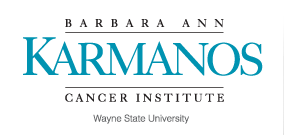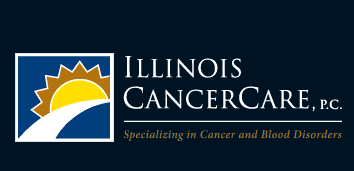Cetuximab With or Without Tivantinib in Treating Patients With Head and Neck Cancer That Is Recurrent, Metastatic, or Cannot Be Removed by Surgery
| Status: | Completed |
|---|---|
| Conditions: | Cancer, Cancer, Cancer, Cancer, Cancer, Cancer, Cancer, Cancer, Cancer, Cancer, Cancer, Cancer, Cancer, Cancer, Cancer, Cancer, Cancer, Cancer, Cancer, Cancer, Cancer, Cancer, Cancer, Cancer, Cancer, Cancer, Cancer, Cancer, Cancer |
| Therapuetic Areas: | Oncology |
| Healthy: | No |
| Age Range: | 18 - Any |
| Updated: | 12/20/2018 |
| Start Date: | August 20, 2012 |
| End Date: | May 5, 2017 |
A Randomized Phase II Trial of ARQ 197 (Tivantinib)/Cetuximab Versus Cetuximab in Patients With Recurrent/Metastatic Head and Neck Cancer
This randomized phase II trial studies how well cetuximab with or without tivantinib works in
treating patients with head and neck cancer that has come back (recurrent), has spread to
other places in the body (metastatic), or cannot be removed by surgery. Monoclonal
antibodies, such as cetuximab, may interfere with the ability of tumor cells to grow and
spread. Tivantinib may stop the growth of tumor cells by blocking some of the enzymes needed
for cell growth. It is not yet known whether cetuximab is more effective with or without
tivantinib in treating patients with head and neck cancer.
treating patients with head and neck cancer that has come back (recurrent), has spread to
other places in the body (metastatic), or cannot be removed by surgery. Monoclonal
antibodies, such as cetuximab, may interfere with the ability of tumor cells to grow and
spread. Tivantinib may stop the growth of tumor cells by blocking some of the enzymes needed
for cell growth. It is not yet known whether cetuximab is more effective with or without
tivantinib in treating patients with head and neck cancer.
PRIMARY OBJECTIVES:
I. Response rate (comparing the cetuximab/ARQ 197 [tivantinib] combination with cetuximab
single agent activity).
SECONDARY OBJECTIVES:
I. Continuous tumor shrinkage. II. Progression-free survival (PFS). III. Overall survival
(OS). IV. Objectives I, II, and III above, as well as response rates, will be assessed and
compared between treatment arms in the subgroup of patients with high mesenchymal epithelial
transition factor (c-MET) expression, and/or high c-MET copy number.
V. Single agent activity for ARQ 197 (tivantinib) in patients who have failed cetuximab.
OUTLINE: Patients are randomized to 1 of 2 treatment arms.
ARM I: Patients receive cetuximab intravenously (IV) over 60-120 minutes on days 1 and 15 and
tivantinib orally (PO) twice daily (BID) on days 1-28. Courses repeat every 4 weeks in the
absence of disease progression or unacceptable toxicity.
ARM II: Patients receive cetuximab IV over 60-120 minutes on days 1 and 15. Patients who fail
cetuximab as a single agent may receive single agent tivantinib PO BID on days 1-28. Courses
repeat every 4 weeks in the absence of disease progression or unacceptable toxicity.
After completion of study treatment, patients are followed up for 5 years.
I. Response rate (comparing the cetuximab/ARQ 197 [tivantinib] combination with cetuximab
single agent activity).
SECONDARY OBJECTIVES:
I. Continuous tumor shrinkage. II. Progression-free survival (PFS). III. Overall survival
(OS). IV. Objectives I, II, and III above, as well as response rates, will be assessed and
compared between treatment arms in the subgroup of patients with high mesenchymal epithelial
transition factor (c-MET) expression, and/or high c-MET copy number.
V. Single agent activity for ARQ 197 (tivantinib) in patients who have failed cetuximab.
OUTLINE: Patients are randomized to 1 of 2 treatment arms.
ARM I: Patients receive cetuximab intravenously (IV) over 60-120 minutes on days 1 and 15 and
tivantinib orally (PO) twice daily (BID) on days 1-28. Courses repeat every 4 weeks in the
absence of disease progression or unacceptable toxicity.
ARM II: Patients receive cetuximab IV over 60-120 minutes on days 1 and 15. Patients who fail
cetuximab as a single agent may receive single agent tivantinib PO BID on days 1-28. Courses
repeat every 4 weeks in the absence of disease progression or unacceptable toxicity.
After completion of study treatment, patients are followed up for 5 years.
Inclusion Criteria:
- Histologically/cytologically confirmed diagnosis of squamous cell carcinoma of head
and neck origin not amenable to curative intent therapy; both human papillomavirus
(HPV) positive (+) and HPV negative (-) are eligible, but status has to be known prior
to randomization (although not required for consenting); any type of tissue based HPV
assessment is acceptable (e.g. p16 immunohistochemistry [IHC] or HPV in situ
hybridization [ISH]); if local HPV testing is not available slides can be sent to the
University of Chicago for HPV testing; please note that p16 IHC is generally only
considered to be accurate for oropharyngeal tumors
- Presence of measurable lesions (as per Response Evaluation Criteria in Solid Tumors
[RECIST] 1.1); generally a >= 10 mm tumor lesion (in the longest diameter by computed
tomography [CT] scan) or a lymph node >= 15 mm (short axis) is considered measurable
disease when evaluated by CT scan (with a slice thickness no greater than 5 mm)
- Availability of tissue (10 tumor containing formalin-fixed, paraffin-embedded [FFPE]
slides/sections)
- Eastern Cooperative Oncology Group (ECOG) performance status of 0, 1
- Patients who have received cetuximab or another inhibitor of epidermal growth factor
receptor (EGFR) in the curative intent treatment setting (e.g. with radiation or
during induction chemotherapy [prior to definitive, curative intent therapy]) are
eligible for the study
- Life expectancy of greater than 8 weeks
- Hemoglobin >= 9.0 g/dL
- Leukocytes >= 3,000/mcL
- Absolute neutrophil count >= 1,500/mcL
- Platelets >= 100,000/mcL
- Total bilirubin =< 1.5 x institutional upper limit of normal
- Aspartate aminotransferase (AST) (serum glutamic oxaloacetic transaminase
[SGOT])/alanine aminotransferase (ALT) (serum glutamate pyruvate transaminase [SGPT])
=< 2.5 x institutional upper limit of normal
- Serum creatinine =< 1.5 x institutional upper limit of normal OR creatinine clearance
>= 60 mL/min/1.73 m^2 for patients with creatinine levels above institutional normal
- Patients must be able to swallow ARQ 197 (tivantinib) by mouth, unless adequate data
about administration by gastrostomy (G)-tube becomes available; tablets may be
crushed, but must be taken orally
- Human immunodeficiency virus (HIV)-positive patients with normal immune function
(cluster of differentiation [CD]4 count > 200) are eligible if there are no drug
interactions with ARQ 197 (tivantinib) or cetuximab
- Women of child-bearing potential and men must agree to use adequate contraception
(hormonal or barrier method of birth control; abstinence) prior to study entry and for
the duration of study participation; should a woman become pregnant or suspect she is
pregnant while she or her partner is participating in this study, she should inform
her treating physician immediately; men treated or enrolled on this protocol must also
agree to use adequate contraception prior to the study, for the duration of study
participation, and 4 months after completion of ARQ 197 (tivantinib) administration
- Ability to understand and the willingness to sign a written informed consent document
Exclusion Criteria:
- Patients who have had chemotherapy or radiotherapy within 2 weeks (6 weeks for
nitrosoureas or mitomycin C) prior to entering the study or those who have not
recovered from adverse events due to agents administered more than 2 weeks earlier
- Nasopharyngeal tumors that show lymphoepithelioma histology
- Patients who have received more than 2 prior cytotoxic treatments in the palliative
treatment setting are ineligible
- Patients who have received treatment with an EGFR or MET inhibitor in the palliative
treatment setting are ineligible
- Patients with known, active brain metastases should be excluded from this clinical
trial; patients with treated brain metastases stable for >= 12 weeks are eligible; use
of corticosteroid (for patients with brain metastasis and other indications for
corticosteroid use) is acceptable on a low maintenance or tapering dose schedule
- History of allergic reactions attributed to compounds of similar chemical or biologic
composition to ARQ 197 (tivantinib) or cetuximab
- Concurrent life-threatening diseases: patients with diseases which with reasonable
certainty do not limit life expectancy to 12 months or less are eligible; assessment
of such concurrent illnesses should be by the principal investigator
- Uncontrolled intercurrent illness including, but not limited to, ongoing or active
infection, symptomatic congestive heart failure, unstable angina pectoris, cardiac
arrhythmia, or psychiatric illness/social situations that would limit compliance with
study requirements
- Pregnant women are excluded from this study; breastfeeding should be discontinued if
the mother is treated with ARQ 197 (tivantinib)
- Concurrent use of warfarin (therapeutic use) is allowed, but requires close monitoring
of prothrombin time (PT)/international normalized ratio (INR)
- History of congestive heart failure defined as class II to IV per New York Heart
Association (NYHA) classification; active coronary artery disease (CAD), clinically
significant bradycardia or other uncontrolled, cardiac arrhythmia defined as >= grade
3 according to National Cancer Institute (NCI) Common Terminology Criteria for Adverse
Events (CTCAE), version 4.0, or uncontrolled hypertension; myocardial infarction
occurring within 6 months prior to study entry (myocardial infarction occurring > 6
months prior to study entry is permitted)
- Patients may not be receiving any other investigational agents
We found this trial at
25
sites
801 N Rutledge St
Springfield, Illinois 62702
Springfield, Illinois 62702
(217) 545-8000

Southern Illinois University School of Medicine At SIU School of Medicine, research includes biologically oriented...
Click here to add this to my saved trials
City of Hope Comprehensive Cancer Center City of Hope is a leading research and treatment...
Click here to add this to my saved trials
1500 East Medical Center Drive
Ann Arbor, Michigan 48109
Ann Arbor, Michigan 48109
800-865-1125

University of Michigan Comprehensive Cancer Center The U-M Comprehensive Cancer Center's mission is the conquest...
Click here to add this to my saved trials
22 South Greene Street
Baltimore, Maryland 21201
Baltimore, Maryland 21201
410-328-7904

University of Maryland Greenebaum Cancer Center The University of Maryland Marlene and Stewart Greenebaum Cancer...
Click here to add this to my saved trials
Click here to add this to my saved trials
5841 S Maryland Ave
Chicago, Illinois 60637
Chicago, Illinois 60637
1-773-702-6180

University of Chicago Comprehensive Cancer Center The University of Chicago Comprehensive Cancer Center (UCCCC) is...
Click here to add this to my saved trials
Decatur Memorial Hospital An American flag bearing only 48 stars waved above Decatur Memorial Hospital...
Click here to add this to my saved trials
4160 John R St #2122
Detroit, Michigan 48201
Detroit, Michigan 48201
(313) 833-1785

Wayne State University/Karmanos Cancer Institute Karmanos is based in southeast Michigan, in midtown Detroit, and...
Click here to add this to my saved trials
Click here to add this to my saved trials
Click here to add this to my saved trials
Ingalls Memorial Hospital As the area's only independent not-for-profit healthcare system, Ingalls has the ability...
Click here to add this to my saved trials
500 University Dr
Hershey, Pennsylvania 17033
Hershey, Pennsylvania 17033
(717) 531-6955

Penn State Milton S. Hershey Medical Center Penn State Milton S. Hershey Medical Center, Penn...
Click here to add this to my saved trials
535 Barnhill Dr
Indianapolis, Indiana 46202
Indianapolis, Indiana 46202
(888) 600-4822

Indiana University Melvin and Bren Simon Cancer Center At the IU Simon Cancer Center, more...
Click here to add this to my saved trials
Click here to add this to my saved trials
1441 Eastlake Ave
Los Angeles, California 90033
Los Angeles, California 90033
(323) 865-3000

U.S.C./Norris Comprehensive Cancer Center The USC Norris Comprehensive Cancer Center, located in Los Angeles, is...
Click here to add this to my saved trials
1441 Eastlake Ave
Los Angeles, California 90033
Los Angeles, California 90033
(323) 865-3000

U.S.C./Norris Comprehensive Cancer Center The USC Norris Comprehensive Cancer Center, located in Los Angeles, is...
Click here to add this to my saved trials
Illinois CancerCare-Peoria Illinois CancerCare, P.C. is a comprehensive practice treating patients withcancer andblood diseases. Our...
Click here to add this to my saved trials
Click here to add this to my saved trials
Click here to add this to my saved trials
Click here to add this to my saved trials
660 S Euclid Ave
Saint Louis, Missouri 63110
Saint Louis, Missouri 63110
(314) 362-5000

Washington University School of Medicine Washington University Physicians is the clinical practice of the School...
Click here to add this to my saved trials
Click here to add this to my saved trials
Click here to add this to my saved trials
Mayo Clinic Arizona Mayo Clinic in Arizona provides medical care for thousands of people from...
Click here to add this to my saved trials
Click here to add this to my saved trials




